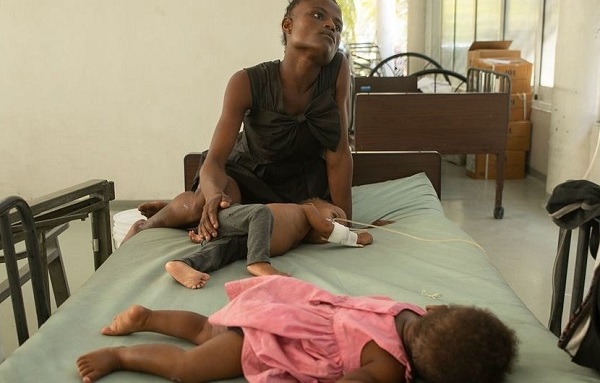Nairobi, (Samajweekly) Eleven countries in eastern and southern Africa are currently experiencing an exponential rise in cholera cases amid a surge in deaths, the Unicef announced.
Unicef said the 11 countries are experiencing an extremely worrying cholera outbreak with 67,822 cases and 1,788 estimated deaths, noting that actual figures are likely higher as limitations in surveillance systems, underreporting, and stigma hamper monitoring, reports Xinhua news agency.
The UN body’s Deputy Regional Director Lieke van de Wiel said poor water and sanitation, extreme weather events, ongoing conflicts, and weak health systems are compounding and endangering the lives of children across southern Africa.
“We thought this region won’t see a cholera outbreak this widespread and this deadly in this day and age,” she said in a statement issued in Nairobi.
Unicef has made an appeal for $150 million for all 11 cholera outbreak countries in the region, including $34.9 million for Malawi and $21.6 million for Mozambique, to provide lifesaving services to a total of 5.4 million people affected by the outbreak.
It said the public health situation is rapidly deteriorating, particularly in the hardest-hit countries.
According to the Unicef, two of the countries with the heaviest burden — Malawi and Mozambique — have a combined total of more than 5.4 million people in need of support, including more than 2.8 million children.
Last month, the World Health Organization warned that 22 countries around the world are currently fighting cholera outbreaks — a number that has since increased following additional outbreaks.
After years of declining cases of cholera globally, cases went up in 2022 and were expected to continue to do so this year.
Van de Wiel said this is a serious cholera crisis, and all signs point to this getting much worse before it gets better.
“We need urgent and sustained investment to respond to the immediate outbreaks and strengthen systems and communities to be better prepared for what is likely to be more severe occurrences in the future,” she said.
Unicef said its integrated response at the country level focuses on the provision of safe water and sanitation, water treatment, soap for handwashing, oral rehydration salts solution, and social, behaviour change, and communication engagement messages.
The UN agency will provide lifesaving nutrition interventions, including nutrition screenings in all cholera treatment units, train healthcare workers to provide quality case management and infection prevention and control, and establish community-based oral rehydration points to prevent progression to severe cholera for non-severe cholera cases.









